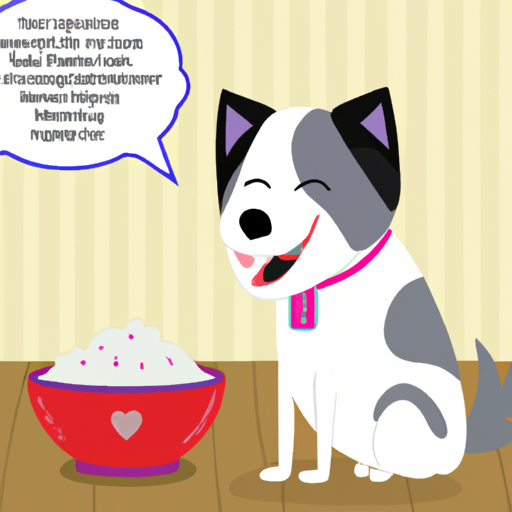As a caring and diligent pet parent, you’ve probably wondered about your furry friend’s dietary needs. You’ve seen many pet foods and supplements boasting rice as an ingredient, leading you to wonder, “What does rice do for dogs?”
H2: Nutritional Value of Rice for Dogs
Rice is a great source of carbohydrates and can provide your dog with quick energy. It’s also easy on their tummies and can help ease digestive issues. Here’s a quick breakdown of the nutritional content in rice:
| Nutrient | Amount in 100g of Rice |
|---|---|
| Calories | 130 |
| Protein | 2.7g |
| Fat | 0.3g |
| Carbs | 28g |
H2: Benefits of Rice in a Dog’s Diet
- Digestibility: Rice is highly digestible, making it a great choice for dogs with sensitive stomachs. It’s often recommended for dogs suffering from diarrhea or other digestive issues.
- Energy: Rice is a great source of energy for active dogs due to its high carbohydrate content.
- Vitamins and Minerals: Rice contains small amounts of vitamins and minerals like vitamin D, calcium, and iron, which contribute to overall health.
H2: Types of Rice and Their Benefits
- White Rice: This is the most common type of rice given to dogs. It’s easy to digest and is often recommended by vets for dogs with upset stomachs.
- Brown Rice: This is a healthier choice as it’s less processed and contains more nutrients than white rice. However, it’s harder for dogs to digest.
- Wild Rice: This type is rich in protein and fiber but is not commonly used in dog food due to its higher cost.
H2: Potential Risks of Feeding Rice to Dogs
Feeding your dog rice isn’t without risks. Here are a few to consider:
- Allergies: Though rare, some dogs can be allergic to rice. If your dog shows signs of an allergic reaction, such as itching or digestive issues, discontinue feeding them rice and consult your vet.
- Nutritional Imbalance: Rice should not be the sole component of your dog’s diet. It should be part of a balanced diet, including proteins, fats, and other nutrients to ensure your dog’s good health.
H2: Frequently Asked Questions
1. Can I feed my dog rice every day?
While rice is safe for dogs, it shouldn’t be the only thing they eat. It’s best used as a supplement to their regular diet or as a temporary meal for a sick dog.
2. How much rice should I feed my dog?
The amount of rice to feed your dog will depend on their size, age, and overall health. It’s best to consult with your vet to determine the appropriate amount.
3. Can puppies eat rice?
Yes, puppies can eat rice, but it should be cooked thoroughly and given in small amounts.
In conclusion, rice can be a beneficial part of your dog’s diet when used correctly. However, it’s essential to monitor your pet and consult with your vet to ensure it’s the best choice for them.



